Mumbai, the former Bombay, is one of the largest cities in India and an important contributor to the textile and garment industry. Bengaluru is well known for its textile heritage and has all the prerequisites for being a great location for India’s fashion and apparel marketplace. In this guide, we will introduce the reader to the dynamic world of the best garment manufacturers in Mumbai, present an overview of key industry players, and detail the aspects that have made Mumbai the global hub of fashion and textiles.
The Prospective of Mumbai’s Textile Sector
The garment manufacturing industry of Mumbai is similar to the city with variations from big manufacturing industries to small-scale units. The industry caters to both domestic and export markets, with two main areas of concentration:
- Lower Parel: It is the host to some of the biggest garment manufacturing factories
- Andheri East: Small-scale garment manufacturing units are recognized as being a specific characteristic of the country.
This geographical distribution combines to form a mutual environment where both large-scale industries and small-scale enterprises are intertwined in developing Mumbai’s image as a textile and fashion city.
Key Players in Mumbai’s Garment Manufacturing Scene
Let’s take a closer look at some of the major Garment Manufacturers in Mumbai that have made their mark in this industry:
1. Alok Industries Ltd.
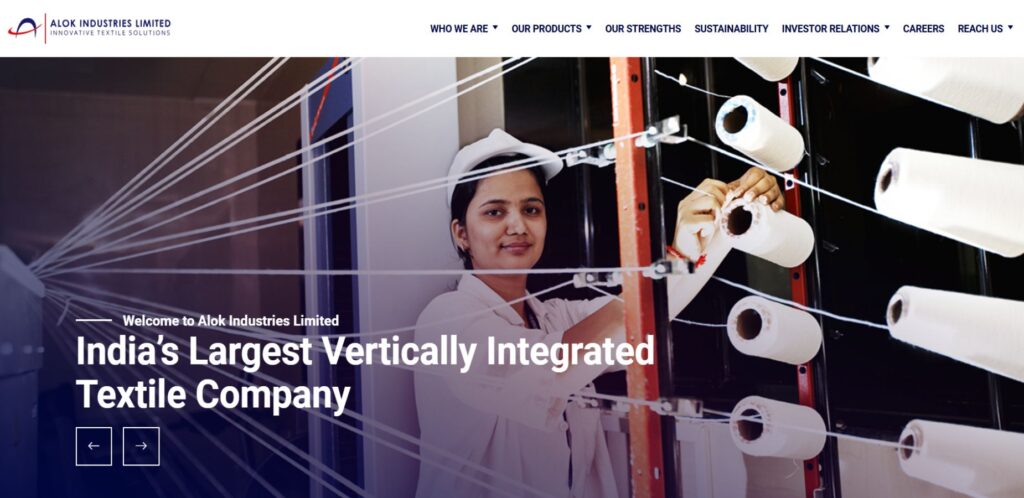
Alok Industries has a belief in superior infrastructure and superior technology to deliver superior quality products and dynamic products to consumers. The company is a textile player in terms of vertical integration and operation in both national and international contexts.
Related Services:
- Cotton yarn spinning
- Knitting and weaving of fabrics
- Garment manufacturing
- Home textiles production
- Polyester and texturizing operations
Financial Information:
- Operating Revenue: Over ₹500 cr
- EBITDA: -58.15%
- Networth: -52.17%
- Debt/Equity Ratio: -1.40
- Return on Equity: N/A
2. Bombay Rayon Fashions Ltd.
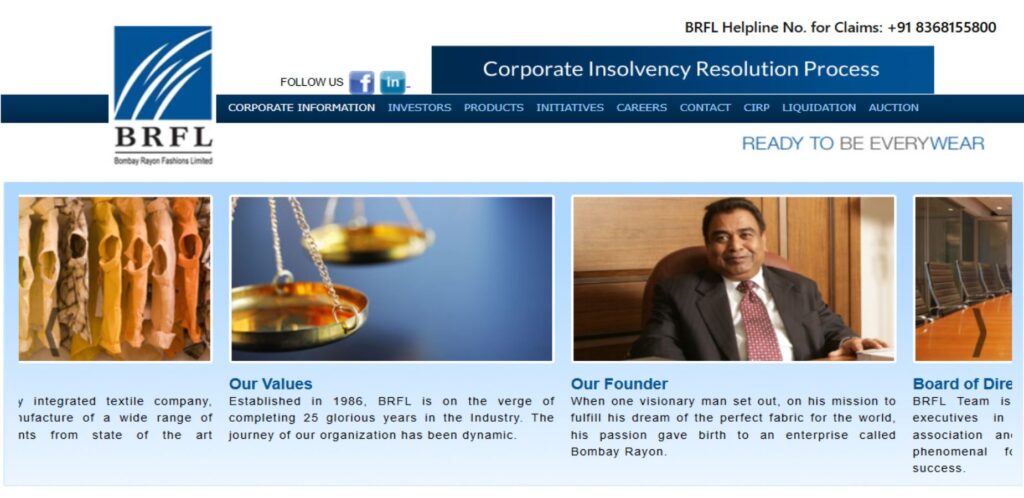
Bombay Rayon Fashions Ltd. is in turn one of the most established manufacturers, suppliers and exporters of synthetic blended fabrics both locally manufactured and imported from other countries. New technologies are used to improve the quality of the products, and the services offered, for the domestic and export market.
Related Services:
- Fabric manufacturing
- Garment production
- Export services
- Fashion design
- Textile research and development
Financial Information:
- Operating Revenue: ₹1 cr – 100 cr
- EBITDA: 37.17%
- Networth: -265.09%
- Debt/Equity Ratio: -6.18
- Return on Equity: N/A
3. Century Textiles & Industries Ltd.
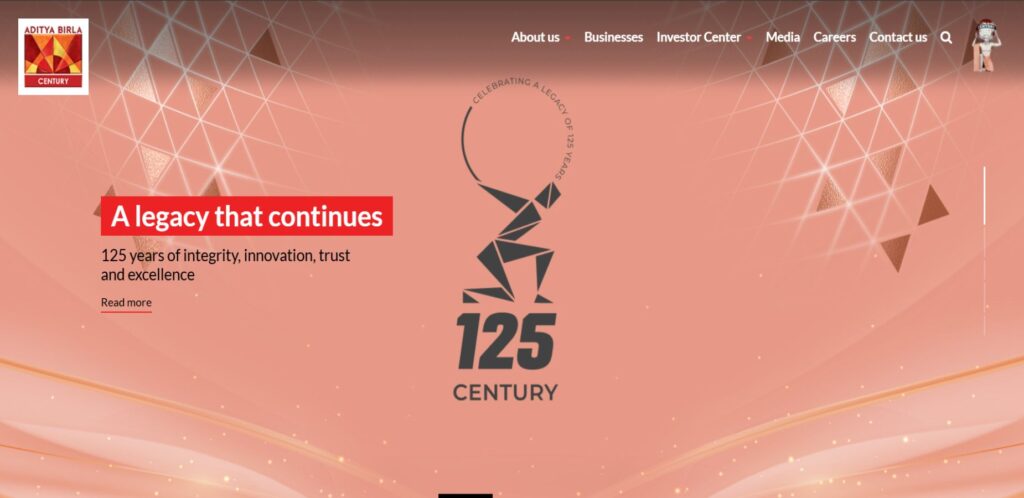
Century Textiles & Industries Ltd. provides international standard products with customer orientation and competition at the international level. Due to the continuous technological advancement, the company is now producing enhanced quality products. The company was established on 20th October 1897 and has had an impact on the textile business for many years.
Related Services:
- Textile manufacturing
- Yarn production
- Fabric processing
- Paper and pulp production
- Real estate development
Financial Information:
- Operating Revenue: Over ₹500 cr
- EBITDA: -56.04%
- Networth: 2.43%
- Debt/Equity Ratio: 0.23
- Return on Equity: 0.86%
4. Future Enterprises Ltd.
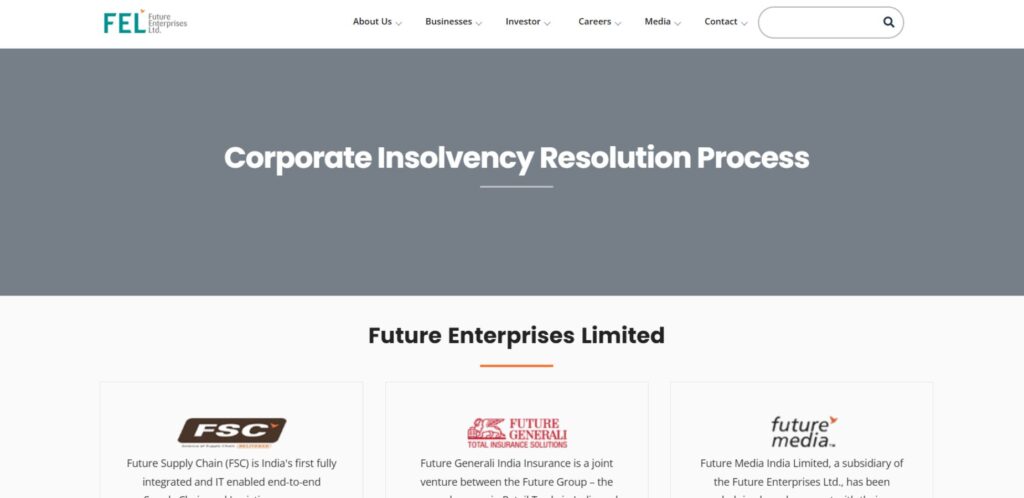
Future Enterprises Limited is a Public Limited Company that was entered into the list on October 12, 1987. It is engaged in textile manufacturing, supply chain & logistics. The major categories of manufactured products and services by the company are apparel, menswear, clothing production, transportation, and storage.
Related Services:
- Clothing manufacturing
- Menswear production
- Logistics services
- Warehousing solutions
- Retail supply chain management
Financial Information:
- Operating Revenue: Over ₹500 cr
- EBITDA: -88.83%
- Networth: -29.11%
- Debt/Equity Ratio: 1.88
- Return on Equity: -40.80%
5. Grasim Industries Ltd.
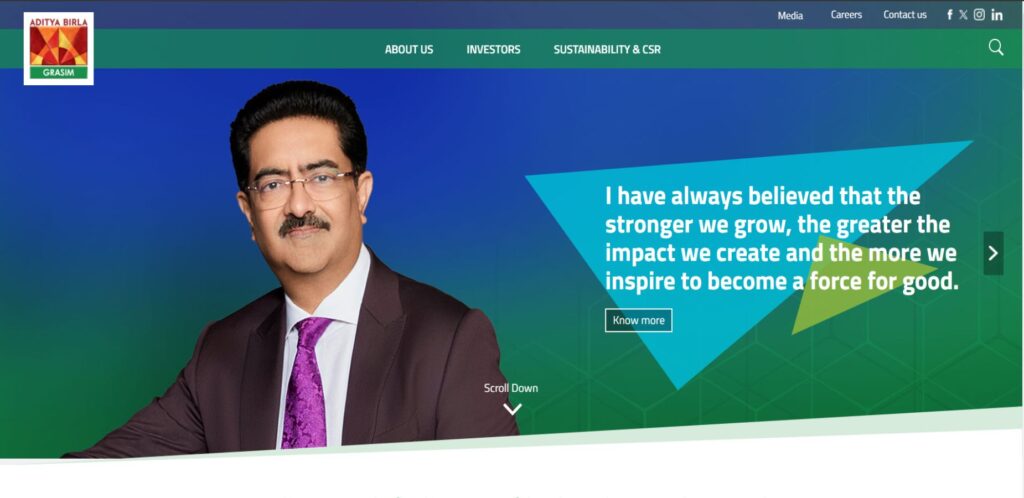
Grasim Industries Ltd is managed & marketed by the Aditya Birla group. It is part of the Aditya Birla Group and today a company that celebrates its seventy-fifth anniversary. The company was incorporated in 1947 on the 25th of August in the year, and it has products such as Viscose Staple Fiber (VSF), cement, chemical, and textile products.
Related Services:
- Viscose Staple Fiber (VSF) production
- Cement manufacturing
- Chemical production
- Textile manufacturing
- Sustainable material development
Financial Information:
- Operating Revenue: Over ₹500 cr
- EBITDA: 105.59%
- Networth: 13.20%
- Debt/Equity Ratio: 0.08
- Return on Equity: 6.28%
6. Indo Count Industries Ltd.
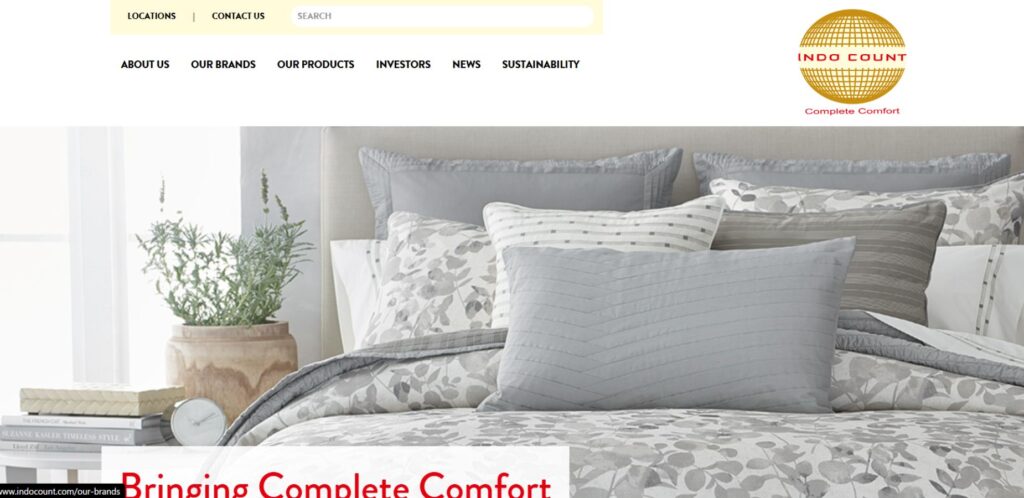
Indo Count Industries produces materials that are genuinely useful and innovative for its consumers. It has always been committed to practicing the best of business practices. Indo Count Industries was incorporated on 07 November 1988 and is a manufacturer and seller of home textile products major in bedding products.
Related Services:
- Bedding product manufacturing
- Comforter production
- Bed sheet manufacturing
- Quilts and shams production
- Textile design and innovation
Financial Information:
- Operating Revenue: Over ₹500 cr
- EBITDA: 3.82%
- Networth: 23.03%
- Debt/Equity Ratio: 0.76
- Return on Equity: 21.56%
7. JBF Industries Ltd.
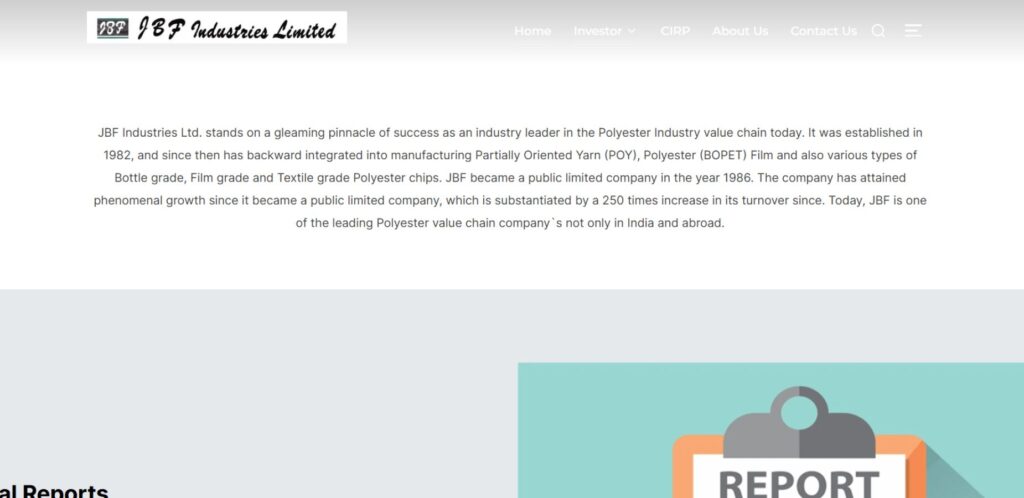
JBF Industries has been accredited with ISO: The company currently has its quality management through the 9001 system of quality standards and environmental management through certification under ISO:14001. The company was established on 12 July 1982 and deals in manufacturing-oriented yarn (POY) and polyester (BOPET).
Related Services:
- Polyester Oriented Yarn (POY) Manufacturing
- Biaxially-Oriented Polyethylene Terephthalate (BOPET) film production
- Textile-grade chip manufacturing
- Polyester filament yarn production
- Packaging solutions
Financial Information:
- Operating Revenue: Over ₹500 cr
- EBITDA: 73.21%
- Networth: -608.05%
- Debt/Equity Ratio: -2.50
- Return on Equity: N/A
8. Raymond Ltd.
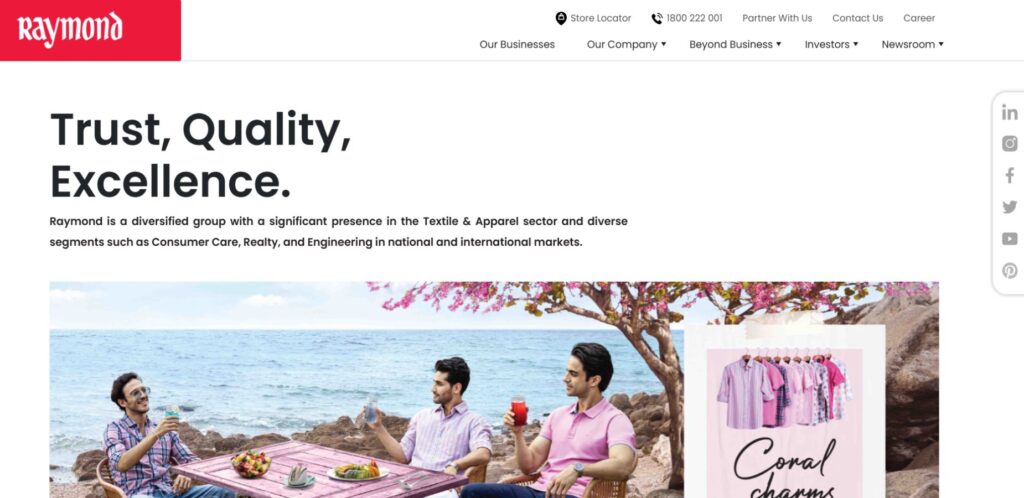
The company Raymond Ltd is one of India’s largest manufacturers of textiles and apparel which specializes in suiting fabrics. It has a long history of operation in the textile product industry and has expanded its business in different segments of the fashion industry.
Related Services:
- Suiting fabric production
- Shirting fabric manufacturing
- Denim production
- Garment manufacturing
- Retail operations
Financial Information:
- Operating Revenue: Over ₹500 cr
- EBITDA: Data not available
- Networth: Data not available
- Debt/Equity Ratio: Data not available
- Return on Equity: Data not available
9. Welspun India Ltd.
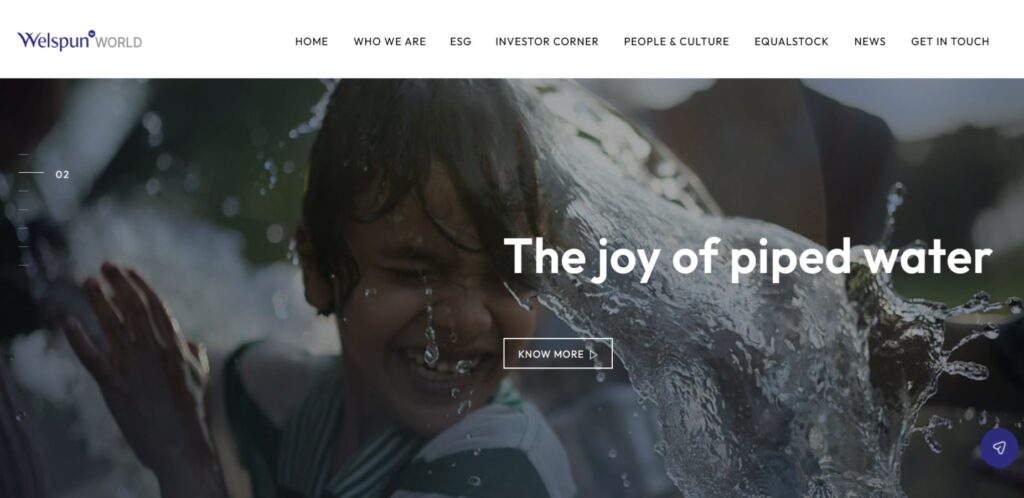
Welspun India Ltd. is a global home textile manufacturing company. The company has been able to market high-quality products and has a strategic base in the export markets especially in bed and bath linen.
Related Services:
- Bed linen manufacturing
- Bath linen production
- Rugs and carpet manufacturing
- Flooring solutions
- Advanced textiles
Financial Information:
- Operating Revenue: Over ₹500 cr
- EBITDA: Data not available
- Networth: Data not available
- Debt/Equity Ratio: Data not available
- Return on Equity: Data not available
10. Arvind Limited
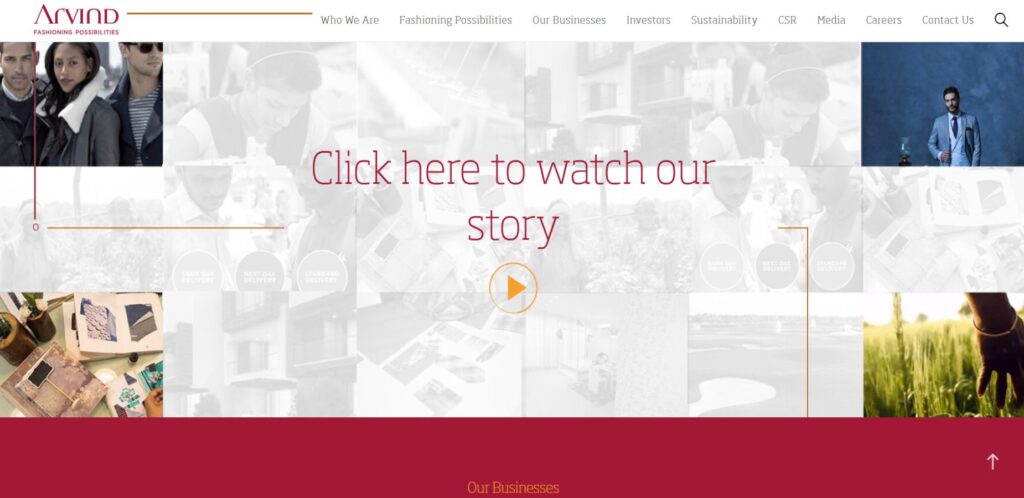
Arvind Limited is a leading textile player in India and has a strong placement in the denim arena. The company has a vision of Environmental Sustainability and Innovation in Textile Manufacturing.
Related Services:
- Denim manufacturing
- Woven fabrics production
- Garment manufacturing
- Technical textiles
- Retail and brands management
Financial Information:
- Operating Revenue: Over ₹500 cr
- EBITDA: Data not available
- Networth: Data not available
- Debt/Equity Ratio: Data not available
- Return on Equity: Data not available
The Ecosystem of Mumbai’s Garment Manufacturing Industry
Mumbai’s garment manufacturing industry thrives on a complex ecosystem that involves various stakeholders:
- Raw Material Suppliers
- Skilled Workforce
- Design Houses
- Technology and Innovation Centers
- Logistics and Export Facilities
Challenges and Opportunities in Mumbai’s Garment Manufacturing Sector
Challenges:
- Increasing competition from other Asian countries
- Rising labor costs
- Environmental concerns related to textile production
- Rapid changes in fashion trends requiring quick turnaround times
- Balancing traditional craftsmanship with modern manufacturing techniques
Opportunities:
- Growing domestic market with increasing disposable income
- Potential for technological advancements in production processes
- Expansion into sustainable and eco-friendly textile production
- Developing niche markets for high-quality, artisanal products
- Leveraging e-commerce platforms for direct-to-consumer sales
The Future of Garment Manufacturing in Mumbai
As the industry evolves, Mumbai’s garment manufacturers are adapting to new realities:
- Embracing Sustainability
- Digital Transformation
- Customization and Personalization
- Focus on Ethical Manufacturing
Conclusion
One of the best examples of the current trends in the garment manufacturing industry is the city of Mumbai. Sanitized from the squalor of textile mills today, Mumbai has now risen to be one of the world’s leading textile exports.
FAQs About Mumbai’s Garment Manufacturing Industry
1. What factors make Mumbai the most preferable place for garment manufacturing in India?
Automation in garment manufacturing and supply chain management has been demonstrated in Mumbai to leverage its competitive advantages including strategic geographic location, highly skilled human resources, developed textile infrastructure, and historical background in textile production. Additional advantages include the availability of raw materials, a pool of talented designers as well as export facilities for the city.
2. What is the status of sustainability in the garment manufacturing firms in Mumbai?
Indeed, there is growing awareness among many garment manufacturers in Mumbai about sustainability. This ranges from sourcing environmentally friendly processes of producing clothes, using organic fabrics and implementing a sustainable way of managing waste to meet the increasing customers’ demand for sustainable fashion.
3. In what way technology is transforming garment manufacturing in Mumbai?
From using the latest manufacturing techniques and equipment, 3D software and design, AI-driven trends and digital supply chain management, technology is changing the face of the garment manufacturing industry in Mumbai. These changes are increasing productivity, decreasing costs, and facilitating quicker action concerning market conditions.
4. What is needed to establish the main challenges that affect the garment manufacturing industry in Mumbai?
Some of the major issues include the threat from other nations, the soaring cost of labour, environmental issues, fast-changing fashion, and the integration of traditional artisanal skills with new technologies.
5. To what extent do Mumbai garment firms benefit the local and national economy?
The garment industry is one of the largest and most important industries in Mumbai and throughout the rest of the country. It offers direct employment to thousands of workers a source of foreign exchange earnings for our country and an input to several ancillary industries. The sector is also a significant contributor in delivering growth to fashion and retail sectors in India.

